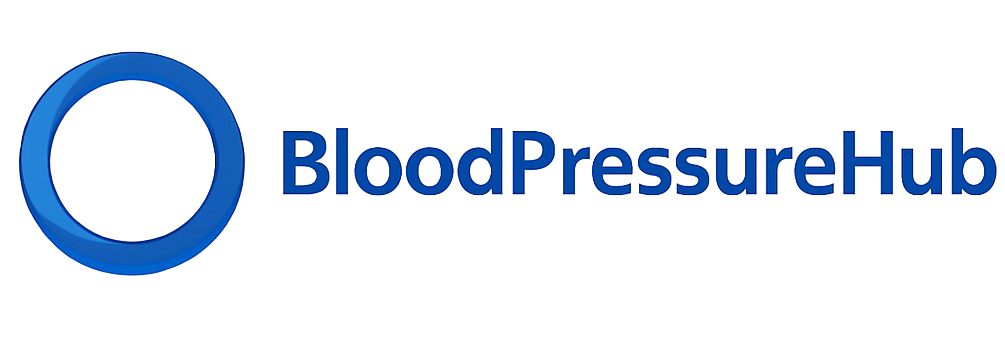Understanding High Blood Pressure: Causes, Symptoms, and Prevention of Hypertension
The BPMaestro Team
2025-03-23

High blood pressure, or hypertension, is a prevalent condition that silently affects millions of individuals worldwide. Despite its widespread occurrence, many remain unaware of its potential dangers and the proactive steps that can be taken for its management and prevention. This article aims to offer an in-depth look into high blood pressure by examining its causes, outlining its symptoms, and discussing effective prevention strategies. Whether you are a health enthusiast, a patient, or a caregiver, this guide provides valuable insights into maintaining cardiovascular health.
Primary Keywords: high blood pressure, hypertension, heart health, cardiovascular risk, prevention, causes, symptoms.
What is High Blood Pressure?
High blood pressure occurs when the force of blood against your artery walls remains consistently elevated, putting extra strain on the heart and vessels. Often described as the "silent killer," hypertension may not manifest noticeable symptoms until serious complications, such as heart disease or stroke, develop.
In general, hypertension is diagnosed when blood pressure readings consistently exceed 130/80 mm Hg. Over time, persistently high blood pressure can damage arteries and vital organs, making early detection and management crucial. For further details, consult authoritative resources like the American Heart Association and the Centers for Disease Control and Prevention (CDC).
Causes of High Blood Pressure
High blood pressure typically results from a mix of genetic, lifestyle, and environmental factors. Understanding these underlying causes is essential for both prevention and effective management.
Genetic and Lifestyle Influences
Hypertension often runs in families, suggesting that genetic factors play a role in how your body regulates blood pressure. Beyond genetics, lifestyle choices significantly contribute to the risk of developing high blood pressure. For instance, a diet high in sodium, sedentary habits, and chronic stress can all lead to elevated blood pressure levels.
While some factors, such as family history, cannot be changed, adopting a healthier lifestyle may mitigate other risks. Consider these points:
- Diet: Consuming foods with high salt content encourages water retention, which can raise blood pressure. Emphasizing whole, unprocessed foods and a balanced diet can help manage sodium intake.
- Physical Activity: A lack of regular exercise can lead to weight gain and reduced cardiovascular efficiency. Incorporating moderate exercise into your daily routine not only helps in weight management but also strengthens your heart.
- Stress: Chronic stress is linked to temporary increases in blood pressure. Over time, stress-related behaviors like overeating or smoking may compound the problem.
Additional Contributing Factors
Other factors that can precipitate high blood pressure include:
- Obesity: Excess body weight forces the heart to work harder to pump blood, increasing pressure on arterial walls.
- Substance Use: Regular consumption of alcohol or tobacco can damage blood vessels and worsen blood pressure control.
- Underlying Health Conditions: Diseases such as kidney disorders, diabetes, or hormonal imbalances can also contribute to the development of secondary hypertension.
For an in-depth review of these factors, consider reading the Mayo Clinic's comprehensive guide on high blood pressure.
Recognizing the Symptoms of High Blood Pressure
One of the challenges in detecting high blood pressure is that it often presents without obvious symptoms until significant damage occurs. Regular screening is therefore essential.
In some cases, individuals may experience symptoms such as persistent headaches, shortness of breath, or dizziness. These symptoms, when combined with other signs, warrant closer attention and should prompt an immediate consultation with a healthcare professional. Although these manifestations can be alarming, they are not definitive indicators on their own. The silent nature of hypertension means that routine monitoring is the best way to catch potential issues before they escalate.
Some key symptoms include:
- Headaches and Dizziness:
Occasional headaches, particularly in the morning, may indicate elevated blood pressure. Dizziness or lightheadedness during everyday activities should be taken seriously. - Chest Pain or Shortness of Breath:
Experiencing chest pain or difficulty breathing, especially during physical exertion, can signal that your heart is under strain. A prompt medical evaluation is advisable if such symptoms occur.
Remember, the absence of symptoms does not guarantee normal blood pressure levels. Routine check-ups and self-monitoring are crucial components of maintaining cardiovascular health.
Prevention Strategies for High Blood Pressure
Preventing high blood pressure requires a proactive approach that focuses on lifestyle modifications and regular health monitoring. The following strategies provide a comprehensive roadmap to reduce your risk:
Adopting a Heart-Healthy Diet
A well-balanced diet is one of the most effective tools for managing blood pressure. Emphasizing nutrient-dense foods while limiting sodium intake can significantly improve cardiovascular health. Consider these dietary modifications:
- Reduce Sodium Intake:
Choose fresh, unprocessed foods over packaged items to help keep sodium levels in check. This approach not only reduces water retention but also supports overall heart function. - Emphasize Fruits and Vegetables:
Rich in essential vitamins and potassium, fruits and vegetables help balance sodium levels in the body. Aim to include a variety of these in every meal. - Incorporate Whole Grains and Lean Proteins:
Whole grains such as oats and brown rice, along with lean sources of protein like fish and poultry, provide sustained energy without the harmful fats that may elevate blood pressure. - Healthy Fats:
Adding omega-3 fatty acids, found in fish and certain plant-based sources, supports heart health and reduces inflammation.
For additional details on dietary guidelines, review the NIH DASH Eating Plan.
Engaging in Regular Physical Activity
Regular exercise is not only beneficial for maintaining a healthy weight but also for enhancing cardiovascular health. Consistent physical activity can strengthen the heart, improve blood circulation, and reduce stress levels. Even a brisk 30-minute walk on most days can contribute significantly to lowering blood pressure and improving overall well-being.
Managing Stress Effectively
Managing stress is critical in preventing high blood pressure, as chronic stress can lead to unhealthy lifestyle choices. Integrating stress-relief practices into your routine can have a lasting positive impact on both your mental and physical health. Consider incorporating practices such as:
- Mindfulness and Meditation:
These practices reduce anxiety and foster a sense of calm, which can help lower stress hormones. - Physical Relaxation Techniques:
Activities like yoga or deep-breathing exercises can promote relaxation and improve overall well-being. - Balanced Lifestyle:
Engaging in hobbies and social activities helps maintain a well-rounded life, minimizing chronic stress.
Limiting Harmful Substances
Avoiding or limiting substances that negatively impact blood pressure is a key preventive measure. Reducing or eliminating tobacco use and moderating alcohol consumption can lead to significant improvements in cardiovascular health. For example, quitting smoking not only helps lower blood pressure but also reduces the risk of heart disease and stroke.
Management and Treatment of High Blood Pressure
If high blood pressure is diagnosed, managing it effectively usually involves a combination of lifestyle modifications and, in some cases, medication. The primary goal is to lower blood pressure to safe levels, reducing the risk of complications.
Lifestyle Modifications and Their Role
Even after diagnosis, continuing with healthy lifestyle practices is essential. Consider these strategies:
- Consistent Dietary Practices:
Maintaining a heart-healthy diet is crucial. Small adjustments in your daily meals can significantly improve blood pressure control. - Regular Exercise Regimen:
Consistent physical activity, even in moderate forms, helps mitigate the effects of high blood pressure. - Stress Reduction Techniques:
Ongoing stress management through mindfulness and relaxation exercises supports overall cardiovascular health.
Medications and When They Are Necessary
In some instances, lifestyle changes alone may not be sufficient, and your healthcare provider might recommend medication. Common options include:
- Diuretics:
These medications help eliminate excess salt and water from the body, reducing blood volume and pressure. - ACE Inhibitors and ARBs:
These work by relaxing blood vessels, making it easier for blood to circulate. - Calcium Channel Blockers and Beta-Blockers:
These medications reduce the workload on the heart and help lower blood pressure.
It is crucial that any medication plan is personalized and regularly monitored by a healthcare professional. More details on treatment options can be found in the Mayo Clinic's treatment guide.
Daily Practices for Managing Blood Pressure
In addition to long-term strategies, simple daily practices can play a significant role in maintaining optimal blood pressure. Consider these practical habits:
- Monitoring and Tracking:
Regularly measuring your blood pressure, whether at home or during medical visits, helps you observe trends and make timely adjustments. - Thoughtful Meal Planning:
Preparing low-sodium, nutrient-rich meals in advance supports your cardiovascular health. - Hydration and Sleep:
Drinking sufficient water and ensuring 7-9 hours of quality sleep each night can have a positive influence on blood pressure. - Mindful Relaxation:
Incorporating brief moments of relaxation, such as a short walk during breaks or deep-breathing exercises, can alleviate stress.
Frequently Asked Questions
What constitutes a normal blood pressure reading?
A typical normal reading is around 120/80 mm Hg, though individual variations exist. Readings consistently above 130/80 mm Hg may require further evaluation and intervention.
How often should blood pressure be monitored?
For individuals with no apparent risk factors, biannual check-ups might be sufficient. However, if you have a family history or other risk factors, more frequent monitoring is advised.
Is high blood pressure reversible?
With dedicated lifestyle changes and, if necessary, appropriate medication, many individuals can effectively manage and even reduce high blood pressure over time.
Can stress directly cause hypertension?
While stress alone might not result in chronic hypertension, its influence on behaviors like diet and exercise—as well as its direct impact on the body—can lead to elevated blood pressure.
Conclusion
High blood pressure is a complex condition that requires a thoughtful and proactive approach. By understanding its causes, recognizing its subtle symptoms, and implementing effective prevention strategies, you can significantly lower your risk of developing serious cardiovascular issues.
Key measures include adopting a heart-healthy diet, engaging in regular physical activity, managing stress effectively, and avoiding harmful substances. Routine monitoring and timely consultation with healthcare professionals are essential for maintaining optimal blood pressure and overall well-being.
Call to Action
We encourage you to reflect on your current health practices and consider the strategies outlined in this guide. Please share your experiences or any questions in the comments section below, and subscribe to our newsletter for more expert insights on cardiovascular health. Your journey to better heart health starts with informed, proactive steps—share this post with friends and family who may benefit from this information.
Additional Resources
For further reading and detailed guidelines on managing high blood pressure, please visit these authoritative sources:
- American Heart Association – Understanding Blood Pressure
- CDC – High Blood Pressure
- Mayo Clinic – High Blood Pressure Treatment
- NIH – DASH Eating Plan
- World Health Organization – Hypertension Fact Sheet
This blog was created by the BPMaestro Team under the supervision of Santiago Miriuka, MD PhD.
